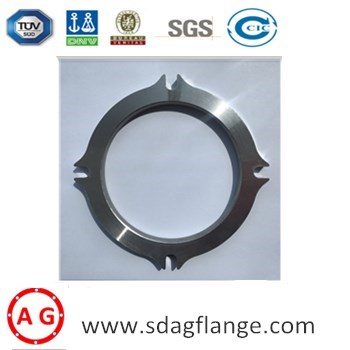Delving into Precision: Understanding the Tolerances Achieved by Professional Mill Service in CNC Machining Flanges
2024-03-14
In the realm of manufacturing, precision is paramount. Whether it's aerospace components, automotive parts, or industrial machinery, achieving tight tolerances is essential for ensuring the functionality, reliability, and performance of the final product. Professional Mill Service stands at the forefront of precision engineering, offering high-quality CNC machining services tailored to diverse industry needs. But what exactly are the typical tolerances achieved by Professional Mill Service in CNC machining flanges? Let's explore this crucial aspect in detail.
1. Micron-Level Accuracy:
Professional Mill Service prides itself on its ability to achieve micron-level accuracy in CNC machining. This means that the dimensions of the machined flanges can be controlled with extreme precision, often within tolerances as tight as a few microns (μm). Such precision ensures that the flanges meet the exact specifications required for their intended application.
2. Dimensional Consistency:
Consistency is key in CNC machining, and Professional Mill Service excels in maintaining tight tolerances across multiple dimensions. Whether it's the outer diameter, inner diameter, thickness, or hole patterns, each dimension is meticulously controlled to ensure uniformity and consistency throughout the production process.
3. Surface Finish Quality:
In addition to dimensional accuracy, Professional Mill Service pays close attention to surface finish quality. Smooth surfaces free from burrs, tool marks, or other imperfections are essential for ensuring proper sealing and functionality of flanges in various applications. Tight tolerances are maintained not only dimensionally but also in terms of surface roughness, with finishes often reaching specified Ra values.
4. Complex Geometries:
Some flange designs feature intricate geometries with challenging features such as tight corners, fillets, or chamfers. Professional Mill Service's advanced CNC machining capabilities enable it to handle these complex geometries with precision, ensuring that even the most intricate details are machined to the specified tolerances.
5. Material Specific Considerations:
Different materials exhibit varying behaviors during machining, and Professional Mill Service takes this into account when determining tolerances. Whether machining aluminum, stainless steel, titanium, or other materials, the machining parameters are carefully optimized to achieve the desired tolerances while minimizing material deformation, warping, or other issues.
6. Adherence to Industry Standards:
Professional Mill Service is committed to adhering to industry standards and customer requirements when determining tolerances for CNC machined flanges. Whether it's ASME, ISO, DIN, or customer-specific standards, the tolerances are carefully selected to ensure compliance and compatibility with the intended application.
7. Continuous Improvement:
Precision machining is an ongoing journey of refinement and improvement. Professional Mill Service continuously evaluates and enhances its machining processes to push the boundaries of achievable tolerances further. Through data-driven analysis, feedback mechanisms, and proactive problem-solving, the company strives to deliver flanges that consistently exceed customer expectations.
In conclusion, the typical tolerances achieved by Professional Mill Service in CNC machining flanges represent the pinnacle of precision engineering. With micron-level accuracy, dimensional consistency, superior surface finish quality, and the ability to handle complex geometries, Professional Mill Service sets the standard for excellence in CNC machining. Whether for aerospace, automotive, or industrial applications, customers can trust in Professional Mill Service to deliver flanges that meet the most demanding tolerances and exceed performance expectations.



